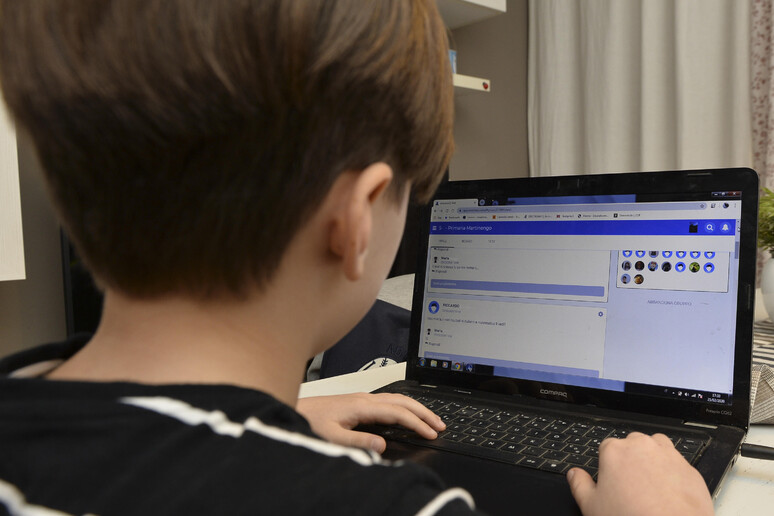(by Lara Sirignano) A task force set up by the Italian education ministry to help teachers during the COVID-19 emergency has brought in "twinning" between schools in wealthier areas and those in ones suffering social problems.
Schools that have for years been experimenting with distance learning are helping out teachers from disadvantaged, outlying areas of the country and cities that are also suffering from deeply rooted social issues.
The Giovanni Falcone school of the crime-prone Zen area in
the Sicilian city of Palermo has been twinned with the Marymount
International School of Rome, for example.
The school's principal, Daniele Lo Verde, said that the two
schools are "extremely different realities. They are a bilingual
private school and they have long been using long-distance
digital teaching methods. We, in a disadvantaged outskirt, have
a high dropout rate and thousands of difficulties related to the
context we are working in. Day and night, basically. And yet, we
understood each other perfectly from the word 'go'."
The Marymount school has made its technological skills
available to the Giovanni Falcone.
Teachers at the Sicilian school know well that they must deal
not only with issues linked to online learning but also the
needs of the weakest, however.
"We were the first to launch campaign to collect food to help
families" in need, Lo Verde said.
"We were trying to hold lessons but we realised that there
were other problems, such as the fact that some families did not
have the money even to meet their basic needs."
The "adopt a student" campaign has instead seen youths in
Turin, Rome and the Abruzzo region urged others in the same
buildings to share their WiFi connections in order to enable
everyone to engage in online learning.
Online radio is also being used, such as by the Salvo
D'Acquisto school in Cerveteri under director Velia Ceccarelli.
"When we understood that we would not be able to return to
classrooms in the short term,, we got organised," she said. "We
began with traditional homework and then realised that we will
have to use other methods and we thought about using the radio.
Ours is broadcast everyday from noon until 1 PM with different
things discussed. There are teachers who speak about art,
experts that provide psychological assistance, and performances
by the kids."
Ceccarelli is the head of two schools: the one in Cerveteri
and the IC Piazzale della Gioventù in Santa Marinella, with over
3,000 schools total.
There are many cases of autism among them and "we try to do
our best", she said.
The professional institute Medi of Palermo, located in an
underprivileged outlying area, is directed by Giovanna
Battaglia, who has to deal daily with poverty and cultural
backwardness.
"We put together all the computers and tablets we have, used
ministry funds and invented others things. The kids," she noted,
"who do not have a WiFi connection knocked on their neighbours'
doors and asked to use theirs, teachers bought SIM cards to give
to their students, and thanks to one of our teachers we created
an open source platform and we have our own server with a fast
connection. We send out the circulars via Telegram."
ALL RIGHTS RESERVED © Copyright ANSA











